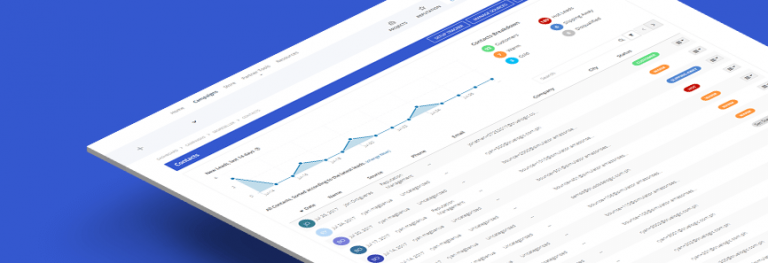Customer relationship management makes business more streamlined and more consumer-oriented by identifying and studying your market, managing tasks and tracking conversion progress. CRM platforms are becoming an important tool and strategy for digital marketing agencies and SEO professionals. I’ve put together this guide that details how you can use and benefit from integrating CRM into your current SEO and online marketing strategy.
Identifying and Targeting Your Market
With so many businesses out there that you can service, how do you know which niche to focus on? Improve your digital marketing strategy by identifying and targeting the best market for you. One of the first things you do in customer relationship management is to collect data about your general demographic. The information collected could be as general as their age, location, gender, or income bracket, or they could be more specific depending on what you want to know. Use this information to find out which market is ready to receive your services and target that group specifically.
Understanding who your customers are lets you create solutions that meet their unique needs. It also lets you spot upcoming Internet trends and then innovate, keeping you ahead of the curve. It also lets you develop ways of reaching out to your customers and showing interest in them, making them more likely to trust you and continue communicating.
Digital Marketing Planning and Development
After identifying your market, you need to choose what platforms to use in your campaign based on your data. Aside from collecting and storing data about your new leads, CRM systems collect information on how many leads meet your goals, what they bought, and when they bought something from you. You can easily see what they care about and what marketing strategies work at engaging them and convincing them to take action. Gauging the effectiveness of your marketing strategy becomes easier. The data you collect lets you make more focused marketing strategies, develop customized promotions for different market segments, and make your system more effective.
Improving Customer Relationship through Market Segmentation
As mentioned in the last item, CRM lets you divide your general market into segments. This allows you to create a customized content strategy depending on which stage of the conversion process they are in. You can group based on the demographics collected early on, based on their industry (if you specialize in multiple niches), or according to their campaign type (SEO, PPC, social, local, etc.), to name a few examples.
Identifying their specific interests and needs lets you address each more when you communicate with them through your writing; when you talk to them directly in forums, social media, and blogs; and when you create different calls to action. You can implement different strategies for each segment at the same time and adjust based on the individual results you get. Maintaining long-term relationships is important in closing deals repeatedly and keeping a steady stream of customers ready and waiting for your next offering.
Easier Tracking, Reporting, and Analytics
Monitoring how people interact and respond to your marketing effort allows you to modify your strategy easily. More importantly, it improves your relationship with your customers by giving them power to make informed decisions. Present your tracked information and analytics in a well-organized report. This makes it easier for your clients to understand where their campaigns stand. They can choose what actions to take after viewing these statistics and hearing your recommendations. At the same time, it will be easier for you to cross-reference where your methodologies positively affect your clients’ campaigns and find new opportunities for conversion.
Connecting Internal Knowledge with Real-Time Conversations
In every online marketing campaign, more than one department in your company gets involved. Your front liners should know every detail about each campaign and should be able to answer any questions your clients may have. CRM makes this easier by collating and storing all information connected to the project in a central database using cloud-computing technology. This way, you can access the information you need and give your clients the updates they need as you talk to them in real time. It will also be easier to access data when you’re in strategizing meetings and when you are putting together proposals and reports – no need to go back and forth different departments to talk to people and copy files from one computer to another.
This guide is meant to be a guide to get you started on CRM. Talk to your account manager today to learn more about CRM and have them assist you when integrating it into your current strategy. Sign up for a free account today to get started. Keep checking back for more tips and updates!
![13 Stats Every Digital Marketer Should Know for 2016 [Video]](https://www.seoreseller.com/wp-content/uploads/2016/09/13-Stats-Every-Digital-Marketer-Should-Know-For-2016-Video-768x264.jpg)
